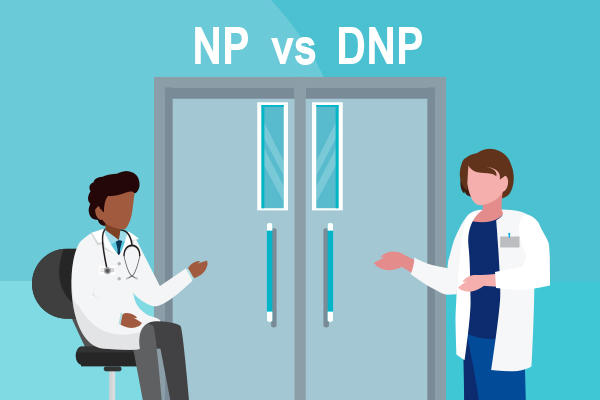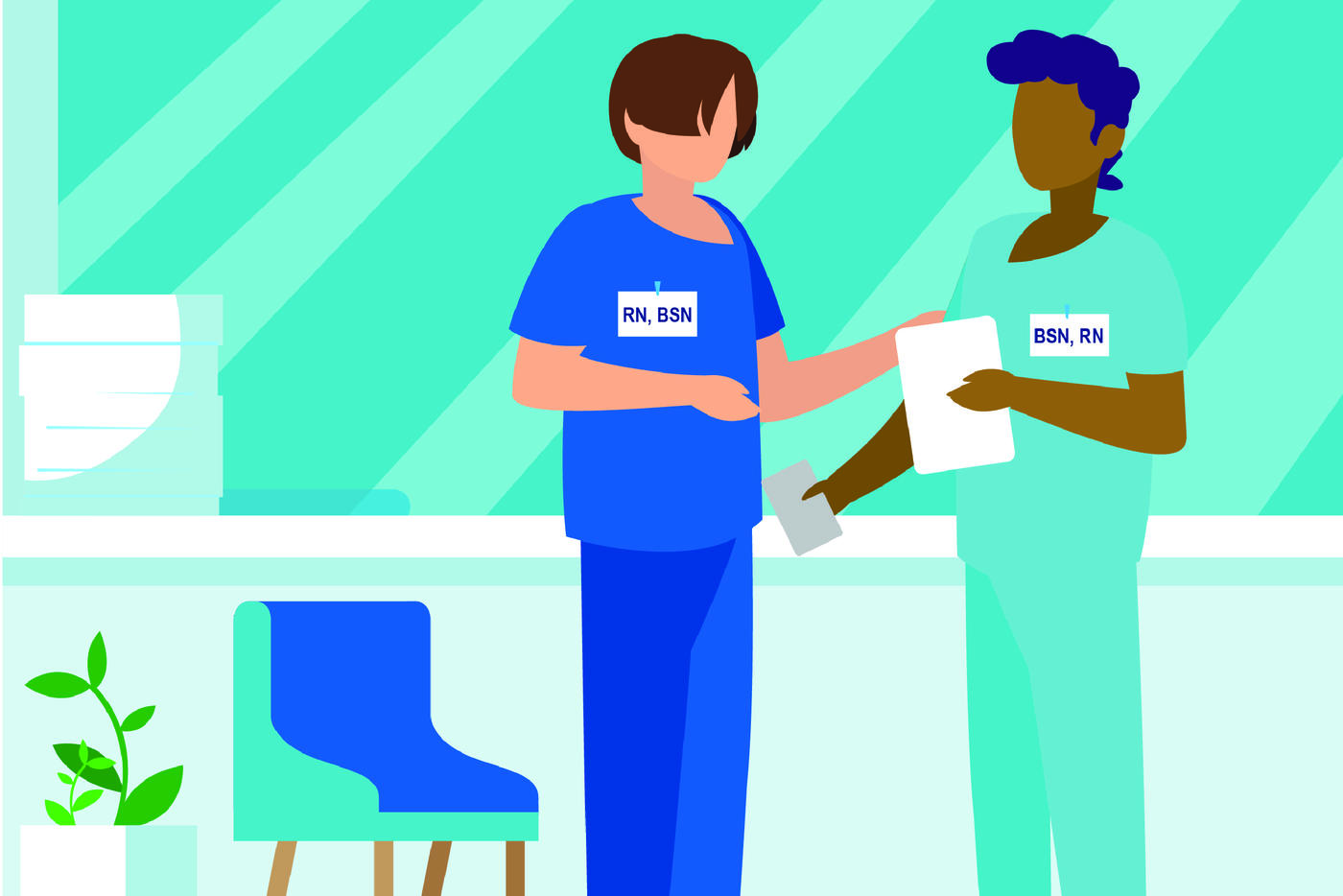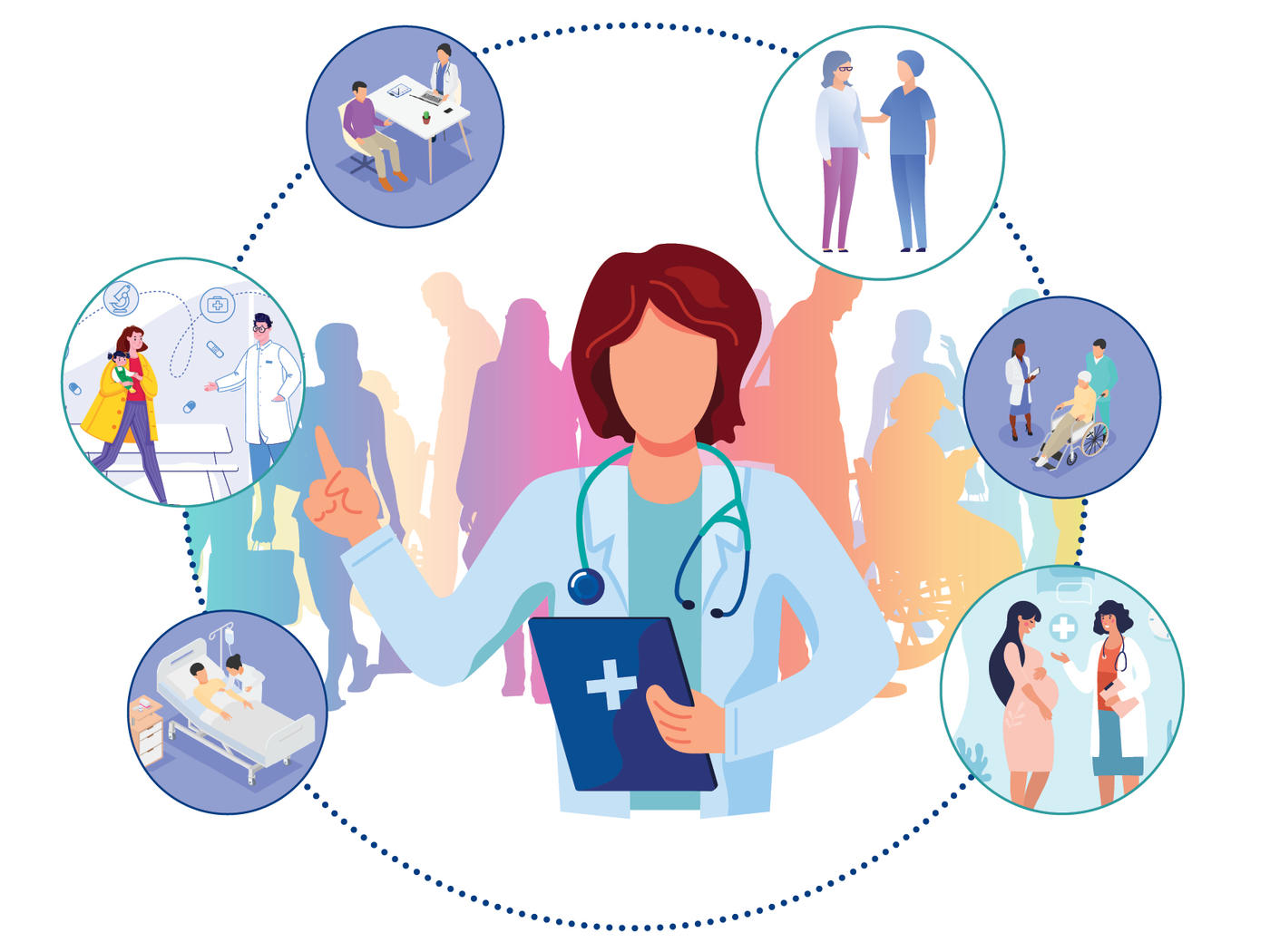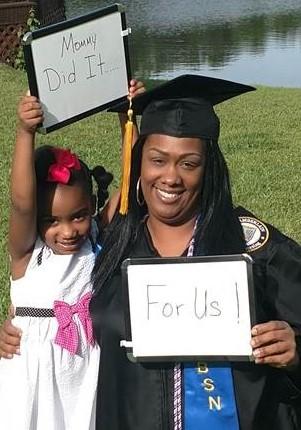Featured
Tags
Share
- Home / Blog / Nursing Today / My Nursing Specialty: Oncology Nursing
My Nursing Specialty: Oncology Nursing
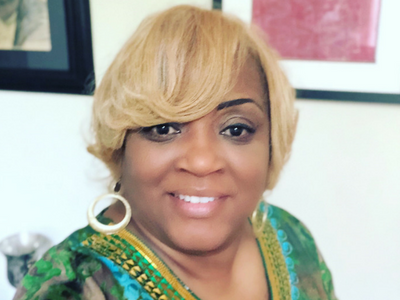
Oncology nurses provide medical care for patients who have or are at risk of developing cancer. Just as important as the expertise these nurses bring to the job are the comfort and support they give their patients. In addition to distributing medication and administering treatment, oncology nurses share a kind word and offer their patients a caring hand to hold. Nursing expertise, compassion and excellent communication are key skills for oncology nurses.
Oncology nurse and Chamberlain Bachelor of Science in Nursing (BSN) graduate Sandra Brown shares why she was drawn to this profession, what it takes to succeed, and what a day in the life of an oncology nurse looks like.
Chamberlain: What kind of patients are you caring for?
Brown: Most of my patients have been diagnosed with some form of cancer. I have taken care of patients who have had breast, prostate, endometrial, lung, pancreatic and neuroendocrine cancers. Most patients are there due to a complication like neutropenic fever, persistent nausea and vomiting, dehydration, or a reaction to chemotherapy. Some are post-op cancer patients who have just had the cancer or an organ (or part of an organ) removed. I have also had patients come in who recently discovered a mass and need to have further testing to determine the type and staging of the cancer.
Chamberlain: How did you become interested in oncology nursing?
Brown: I was my father-in-law’s caretaker when he had cancer, and watching the nurses interact with him got me interested in it. When he got sick, he said, “You have to promise me you’re not going to stop nursing school. No matter what happens to me, you don’t stop.”
I shied away from oncology for a little bit when he passed away, but then I came back to it because I felt like I needed to take care of people who have cancer. I wanted to do this in honor of him.
Chamberlain: What is a typical day in the oncology unit like?
Brown: The most patients that I have on any typical day is four. My workday begins around 6:45 am. I find my assignment for the day and then proceed to look over the SBAR (situation, background, assessment and recommendation) report that came with my assignment. After the 7:00 am huddle at the nurses station, it’s time for the bedside shift report with the night nurse and line reconciliation on the computer. After I have taken responsibility for my patients, I gather the supplies I think I need for the day and pull medications.
Around 8:00 am, I go back in to see my patients, do the head-to-toe assessment, check morning vital signs again and then distribute morning medications. After I have seen all my patients, I go and finish documentation on my patients, unless I get a call to come in from a patient or family member. I usually try to spend some time talking and getting to know my patient more on a personal level instead of basing all of my knowledge off of what I have been told or read.
Every even hour after my initial visit, I go in to see my patient and check them for pain, personal needs and so on. I also give any other medication they may need throughout the day during those times. Around 4:00 pm, I try to sit down and update my care plan, chart my evaluation notes for the day and do the acuity assessment for the day on each patient. From 6:30 to 7:00 pm, we tie up loose ends, and at the 7:00 pm huddle, the bedside shift report begins.
Chamberlain: What is the most challenging part of this specialty?
Brown: When a patient says goodbye to a loved one. … If you’re a good nurse, they’ll say goodbye to you, too, and it’s just the hardest thing. What is your favorite thing about oncology nursing?
Getting a chance to get to know my patients and their families would be my favorite part of oncology nursing. They are the bravest, most encouraging and often spiritual people you will meet. They are really strong despite cancer and chemo destroying their bodies.
Chamberlain: What is your favorite thing about oncology nursing?
Brown: Getting a chance to get to know my patients and their families is my favorite part of oncology nursing. They are the bravest, most encouraging people you will meet, and often spiritual. They are really strong, despite cancer and chemo destroying their bodies.
Chamberlain: What would make someone a good fit for this specialty?
Brown: Being a very caring and compassionate person. It’s not going to be easy, but you can do it. In oncology nursing, it’s like family. We see what’s going on, so we try to be helpful and try to be there to help each other in the moment.
Chamberlain: What words of advice would you give someone who is considering a career in oncology nursing?
Brown: I would say that just like birth, death is a part of life. Be caring and compassionate. Being organized will help when you have to give a patient chemo and you still have three other patients. Always ask questions and always ask for help! This is the hardest for most nurses.
Chamberlain: Why did you choose Chamberlain for your nursing degree?
Brown: Chamberlain provided everything I needed to earn my BSN. If I didn’t understand something, the tutoring center was always there. Nurses who had the experience were able to help me, and instructors were always available with their door open when I needed them. The tools were there for me to be a successful student and to be an extraordinary nurse.
After earning her BSN degree from Chamberlin, Brown decided to continue her learning by enrolling in the university’s Master of Science in Nursing (MSN) program, choosing the Nurse Educator specialty track. “Chamberlain was good to me during my undergraduate nursing degree program,” she said. “There is no GRE requirement and there’s an alumni discount, so it was a no-brainer. My professors at Chamberlain were so great, so I want to do the same for others.” Brown earned her MSN from Chamberlain in 2019.
You can become an extraordinary nurse like Sandra Brown. Chamberlain University’s 3-Year BSN program provides the education, hands-on training and support you need to become a skilled, compassionate nurse. You can earn your nursing degree at one of Chamberlain’s 22 campus locations, or you can earn your Bachelor of Science in Nursing online.
Whether you choose online or in-person learning, you could become a nurse in just three years. Chamberlain’s nursing program is the largest pre-licensure BSN degree program in the United States, with more than 94,000 students and alumni. Chamberlain is experienced too – with a history of educating nurses for more than 130 years.
Get the education and support you need to become the nurse you dream of being. Request information today about earning your BSN from Chamberlain. Your future – and your patients – are waiting.
Chamberlain University, an accredited institution, offers bachelor’s, master’s, doctoral and certificate programs in nursing and healthcare professions. With a growing network of campuses and robust online programs, Chamberlain continues to build on more than 130 years of excellence in preparing extraordinary healthcare professionals.
Chamberlain University is accredited by the Higher Learning Commission (www.hlcommission.org), an institutional accreditation agency recognized by the U.S. Department of Education. The baccalaureate degree program in nursing, master’s degree program in nursing, Doctor of Nursing Practice program and post graduate APRN certificate programs at Chamberlain University are accredited by the Commission on Collegiate Nursing Education (www.aacnnursing.org/CCNE).
By Meg Tokars
More from Nursing Today
Request More Information
To receive the Chamberlain University Program Guide, including associated career paths, please select a program of study.




